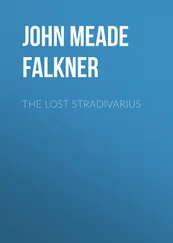John Barth - Lost in the Funhouse
Здесь есть возможность читать онлайн «John Barth - Lost in the Funhouse» весь текст электронной книги совершенно бесплатно (целиком полную версию без сокращений). В некоторых случаях можно слушать аудио, скачать через торрент в формате fb2 и присутствует краткое содержание. Год выпуска: 2014, ISBN: 2014, Издательство: Knopf Doubleday Publishing Group, Жанр: Современная проза, на английском языке. Описание произведения, (предисловие) а так же отзывы посетителей доступны на портале библиотеки ЛибКат.
- Название:Lost in the Funhouse
- Автор:
- Издательство:Knopf Doubleday Publishing Group
- Жанр:
- Год:2014
- ISBN:978-0-8041-5250-1
- Рейтинг книги:3 / 5. Голосов: 1
-
Избранное:Добавить в избранное
- Отзывы:
-
Ваша оценка:
- 60
- 1
- 2
- 3
- 4
- 5
Lost in the Funhouse: краткое содержание, описание и аннотация
Предлагаем к чтению аннотацию, описание, краткое содержание или предисловие (зависит от того, что написал сам автор книги «Lost in the Funhouse»). Если вы не нашли необходимую информацию о книге — напишите в комментариях, мы постараемся отыскать её.
Lost in the Funhouse — читать онлайн бесплатно полную книгу (весь текст) целиком
Ниже представлен текст книги, разбитый по страницам. Система сохранения места последней прочитанной страницы, позволяет с удобством читать онлайн бесплатно книгу «Lost in the Funhouse», без необходимости каждый раз заново искать на чём Вы остановились. Поставьте закладку, и сможете в любой момент перейти на страницу, на которой закончили чтение.
Интервал:
Закладка:
The last, at least, was real enough: never such a brilliant forenoon, sweet beach, besplendored sea! My head ached with indecision; the rough crew grinned by the boat, leaning on their oars. Life roared oceanlike with possibility: outrageous risks! outrageous joys! I stood transfixed, helpless to choose; Aegisthus snatched my lyre, clubbed me with a whang among the amphorae, sprang into the boat. I lay where felled, in medias res, and wept with relief to be destroyed at last; the sailors’ guffaws as they pulled away were like a music.
5
Long time I lay a-beachèd, even slept, and dreamed a dream more real than the itch that had marooned me. My privy music drew the island girls: smooth-limbed, merry-eyed Meropes; I seized the first brown wrist that came in reach; her sisters fled. Mute, or too frightened to speak, my victim implored me with her eyes. She was lovely, slender, delicate, and (farewell, brute dreams) real: a human person, sense and flesh, undeniable as myself and for aught I knew as lonely. A real particular history had fetched her to that time and place, as had fetched me; she too, not impossibly, was gull of the wily world, a trickèd innocent and hapless self-deceiver. Perhaps she had a lover, or dreamed of one; might be she was fond of singing, balmed fragile sense with art. She was in my power; I let her go; she stood a moment rubbing her wrist. I begged her pardon for alarming her; it was loneliness, I said, made my fancy cruel. My speech was no doubt foreign to her; no doubt she expected ravishment, having been careless enough to get caught; perhaps she’d wanted a tumbling, been slow a-purpose, what did I know of such matters? It would not have surprised me to see her sneer at a man not man enough to force her; perhaps I would yet, it was not too late; I reached out my hand, she caught it up with a smile and kissed it, I woke to my real-life plight.
In the days thereafter, I imagined several endings to the dream: she fled with a laugh or hoot; I pursued her or did not, caught her or did not, or she returned. In my favorite ending we became friends: gentle lovers, affectionate and lively. I called her by the name of that bee-sweet form I’d graced her with, she me my own in the clover voice that once had crooned it. I tried imagining her mad with passion for me, as women in song were for their beloveds — but the idea of my inspiring such emotion made me smile. No, I would settle for a pastoral affection spiced with wild seasons, as I’d known; I did not need adoring. We would wed, get sons and daughters; why hadn’t I Merope? We would even be faithful, a phenomenon and model to the faithless world.…
Here I’d break off with a groan, not that my bedreamèd didn’t exist (or any other life on my island, I presently determined, except wild goats and birds), but that she did, and I’d lost her. The thought of Merope in the swart arms of Aegisthus, whether or not she mocked my stranding, didn’t drive me to madness or despair, as I’d expected it would; only to rue that I’d not been Aegisthus enough to keep her in my own. Like him, like Agamemnon, like Iphigenia for all I knew, I had got my character’s desert.
Indeed, when I’d surveyed the island and unstoppered the first of the crocks, I was able to wonder, not always wryly, whether the joke wasn’t on my deceivers. It was a perfumed night; the sea ran hushed beneath a gemmèd sky; there were springs of fresh water, trees of wild fruit, vines of wild grape; I could learn to spear fish, snare birds, milk goats. My lyre was unstrung forever, but I had a voice to sing with, an audience once more of shaggy nans and sea birds — and my fancy to recompense for what it had robbed me of. There was all the world I needed; let the real one clip and tumble, burn and bleed; let Agamemnon pull down towns and rape the widows of the slain; let Menelaus shake the plain with war-shouts and Helen take on all comers; let maids grow old, princes rich, poets famous — I had imagination for realm and mistress, and her dower language! Isolated from one world by Agamemnon, from another by my own failings, I’d make Mycenaes of which I was the sole inhabitant, and sing to myself from their golden towers the one tale I knew.
Crockèd bravery; I smile at it now, but for years it kept me off the rocks, and though my moods changed like the sea-face, I accomplished much. Now supposing I’d soon be rescued I piled up beacons on every headland; now imagining a lengthy tenure, in fits of construction I raised me a house, learned to trap and fish, cultivated fruits and berries, made goatsmilk cheese and wrappings of hide — and filled jar after jar with the distillations of my fancy. Then would come sieges of despair, self-despisal, self-pity; gripped as by a hand I would gasp with wretchedness on my pallet, unable to muster resolve enough to leap into the sea. Impossible to make another hexameter, groan at another sundown, weep at another rosy-fingered dawn! But down the sun went, and re-rose; anon the wind changed quarter; I’d fetch me up, wash and stretch, and with a sigh prepare a fresh batch of ink, wherein I was soon busily aswim.
It was this invention saved me, for better or worse. I had like my fellow bards been used to composing in verse and committing the whole to memory, along with the minstrel repertoire. But that body of song, including my Mycenaean productions, rang so hollow in my stranded ears I soon put it out of mind. What are Zeus’s lecheries and Hera’s revenge, to a man on a rock? No past musings seemed relevant to my new estate, about which I found such a deal to say, memory couldn’t keep pace. Moreover, the want of any audience but asphodel, goat, and tern played its part after all in the despairs that threatened me: a man sings better to himself if he can imagine someone’s listening. In time therefore I devised solutions to both problems. Artist through, I’d been wont since boyhood when pissing on beach or bank to make designs and clever symbols with my water. From this source, as from Pegasus’s idle hooftap on Mount Helicon, sprang now a torrent of inspiration: using tanned skins in place of a sand-beach, a seagull-feather for my tool, and a mixture of wine, blood, and squid-ink for a medium, I developed a kind of coded markings to record the utterance of mind and heart. By drawing out these chains of symbols I could so preserve and display my tale, it was unnecessary to remember it. I could therefore compose more and faster; I came largely to exchange song for written speech, and when the gods vouchsafed me a further great idea, that of launching my productions worldward in the empty amphorae, they loosed from my dammèd soul a Deucalion-flood of literature.
For eight jugsworth of years thereafter, saving the spells of inclement weather aforementioned, I gloried in my isolation and seeded the waters with its get, what I came to call fiction. That is, I found that by pretending that things had happened which in fact had not, and that people existed who didn’t, I could achieve a lovely truth which actuality obscures — especially when I learned to abandon myth and pattern my fabrications on actual people and events: Menelaus, Helen, the Trojan War. It was as if there were this minstrel and this milkmaid, et cetera; one could I believe draw a whole philosophy from that as if.
Two vessels I cargoed with rehearsals of traditional minstrelsy, bringing it to bear in this novel mode on my current circumstances. A third I freighted with imagined versions, some satiric, of “the first fact of our generation”: what was going on at Troy and in Mycenae. To the war and Clytemnestra’s treachery I worked out various dénouements: Trojan victories, Argive victories, easy and arduous homecomings, consequences tragical and comic. I wrote a version wherein Agamemnon kills his brother, marries Helen, and returns to Lacedemon instead of to Mycenae; another in which he himself is murdered by Clytemnestra, who arranges as well the assassination of the other expeditionary princes and thus becomes empress of both Hellas and Troy, with Paris as her consort and Helen as her cook — until all are slain by young Orestes, who then shares the throne with Merope, adored by him since childhood despite the difference in their birth. I was fonder of that one than of its less likely variants — such as that, in cuckold fury, Agamemnon butchers Clytemnestra’s whole ménage except Merope, who for then rejecting his advances is put ashore to die on the island where everyone supposes I’ve perished long since. We meet; she declares it was in hopes of saving me she indulged Aegisthus; I that it was the terror of her love and beauty drove me from her side. We embrace, sweetly as once in rosemaryland.… But I could only smile at such notions, for in my joy at having discovered the joy of writing, the world might’ve offered me Mycenae and got but a shrug from me. Indeed, one night I fancied I heard a Meropish voice across the water, calling the old name she called me by — and I ignored that call to finish a firelit chapter. Had Merope — aye, Trojan Helen herself — trespassed on my island in those days, I’d have flayed her as soon as I’d laid her, and on that preciousest of parchments scribed the little history of our love.
Читать дальшеИнтервал:
Закладка:
Похожие книги на «Lost in the Funhouse»
Представляем Вашему вниманию похожие книги на «Lost in the Funhouse» списком для выбора. Мы отобрали схожую по названию и смыслу литературу в надежде предоставить читателям больше вариантов отыскать новые, интересные, ещё непрочитанные произведения.
Обсуждение, отзывы о книге «Lost in the Funhouse» и просто собственные мнения читателей. Оставьте ваши комментарии, напишите, что Вы думаете о произведении, его смысле или главных героях. Укажите что конкретно понравилось, а что нет, и почему Вы так считаете.












